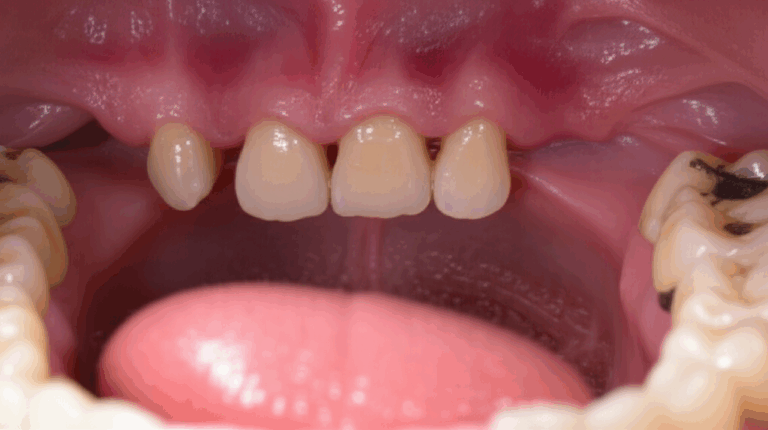
Does CarePlus Cover Dental Implants? A Complete Guide You Can Count On
If you have CarePlus and you need dental implants, this article is your map. Learn how CarePlus works, what dental implants cost, and the best things you can do to get the most from your plan. Find clear answers, plain examples, and simple tips right here.
Table of Contents
What is CarePlus and Why Does Dental Implant Coverage Matter?
Let’s keep it simple. CarePlus is a company that gives Medicare Advantage health insurance, mostly in Florida. When you join, you may get extra things—like dental help—that regular Medicare doesn’t offer. Dental implants are special screws that go in your gums to hold new teeth. Dentists use them to keep crowns or bridges in place. They’re strong, last a long time, and look real.
Here’s the tough part: Dental implants are really pricey. One tooth can cost $3,000 to $6,000 (see table below). For most people, that’s just too much money.
But you need good teeth for eating and smiling. So the big question is, will your CarePlus plan help pay—or is it all on you? That’s what this guide explains.
Does CarePlus Actually Cover Dental Implants?
This is likely your first question—does CarePlus, as a Medicare Advantage plan, pay for dental implants at all?
The answer isn’t easy. Here’s why:
- Original Medicare (Parts A & B) hardly ever covers dental implants or most other dental services.
- CarePlus Medicare Advantage (Part C) Plans might offer extra dental help, but implant coverage is rare and changes a lot.
- Some CarePlus plans give you a yearly “allowance” you can use for dental work. Some tell you what dental work they’ll pay for—sometimes implants are there, sometimes they’re not.
- So: It all depends on your CarePlus plan.
You can’t just guess “yes” or “no” until you check your own plan. Implants might be covered sometimes, but not always.
Which CarePlus Plans Might Cover Implants?
Let’s be straight: Not all dental insurance is the same. With CarePlus, what you get depends on a few things:
Types of Dental Help in CarePlus Plans:
- Plans With a Yearly Dental Allowance:
Some plans give a set amount (for example, $1,500 each year) to use for dental bills. If you can use this for implants, that’s good. If not, you’ll need other choices.
- Plans That Pay for Big Dental Work:
These might help with big jobs like crowns, bridges, or, sometimes, implants.
- Plans That Say “No Implants”:
Some spell out “No dental implants covered.” So always read the fine print.
Is Your Plan HMO, PPO, or Something Else?
- HMO Plans make you use in-network dentists. Go out-of-network and CarePlus may not help.
- PPO Plans may give you more options, but you might pay more if the dentist is out-of-network.
- Rules by state matter, too: Florida may not be the same as Tennessee or New York.
When You’re Unsure:
Call CarePlus, look at your Summary of Benefits, or ask your dentist to help you check.
What Rules and Limits Will You Face?
Even if your plan helps with implants, there are some rules to know.
Yearly Maximum Benefit:
Most plans stop paying after a certain amount each year—like $1,000 to $2,500. After that, you pay everything yourself.
Deductibles, Copays, Coinsurance:
You might have to pay part of the bill, like 20–50%, for “big dental work.” On a $4,000 bill, that means $800–$2,000 comes from you, even with coverage.
Medical Need:
If you need implants so you can chew and eat (not just for looks), you may have a better shot at getting some coverage. Just for looks? Usually not covered.
Pre-approval:
Most plans want your dentist to ask CarePlus before starting implants or bone grafts. Skip this, and you may have to pay the whole bill.
Use In-Network Dentists:
Plans might make you go to a dentist in their network for implants. Out-of-network? You might get nothing or a small payment.
Waiting Times:
Some plans make you wait 6–12 months before covering big stuff like implants.
How to Check Your Own CarePlus Dental Implant Benefits
Nobody likes paperwork. But if you want to save money, check these three things:
1. Look Over Plan Papers
Grab these:
- Your Summary of Benefits (SOB)
- Your Evidence of Coverage (EOC)
Look for words like “implant,” “yearly max,” “co-insurance,” and “big dental services.” Find pages listing what is covered and what isn’t.
2. Call CarePlus Member Services
Call the number on your card. Have your member ID ready. Ask:
- Does my plan help with dental implants?
- Are there limits or waiting times?
- Do I need pre-approval? Do I have to use certain dentists?
- What dental codes do I need for a pre-approval? (Ask about codes D6010, D6058, and others.)
3. Ask Your Dentist for Pre-Check
Let your dentist send in a pre-check request. CarePlus will reply with what they pay for, what they don’t, and an idea of your cost.
What Are the True Costs of Dental Implants?
Let’s not pretend. Dental implants cost a lot. But they also last a long time and work like real teeth.
Here’s a table of average costs. Prices change by place, dentist, and your mouth’s condition.
| Procedure | Estimated Cost per Tooth |
|---|---|
| Implant (post, abutment, crown total) | $3,000–$6,000 |
| Full arch (All-on-4, upper or lower) | $15,000–$30,000 |
| Extractions, bone grafting (add-on) | $200–$3,000 |
Source: American Dental Association, American Academy of Implant Dentistry, industry surveys
Don’t forget—extra steps, like bone grafts or sinus lifts, can make it cost even more. If you use a removable partial or get dentures, you pay much less.
How Much Will You Pay Out-of-Pocket With CarePlus?
It’s smart to do the math. Even if CarePlus helps with some implant costs, you may pay a lot yourself. Here’s a normal example:
Sample Example:
- One dental implant: $4,000
- CarePlus plan pays 50% for big services
- Yearly dental limit: $1,500
Math:
- Plan could pay $2,000, but max for the year is $1,500.
- Plan pays $1,500—no more, even if the bill is higher.
- You pay: $2,500 plus any deductible.
Most of the time, the yearly limit is the main rule. After you reach it, you pay full price for anything else that year.
Tip: Always ask for cost info before you start treatment, so there are no surprises.
What if CarePlus Won’t Cover Dental Implants?
Don’t worry. You still have choices if your plan won’t pay for dental implants, or your max is too low.
1. Think About Other Options
- Dentures: Removable teeth fill the gap for less money. Many removable denture labs offer good, comfy choices.
- Dental Bridges: Regular bridges use your real teeth to support a new one; these are more likely to be covered by insurance.
2. Ways to Pay Less
- Dental School Clinics: Students, watched by experts, often do work for less money.
- Payment Plans and Savings Plans: Some clinics let you pay over time instead of all at once.
- Medical Credit Cards: Plans like CareCredit let you split the cost up.
- Community Groups and Charities: Some non-profits and local groups help people get dental work.
- Veterans Affairs (VA): If you’re a veteran, check if the VA gives dental help.
Can You Lower Your Dental Implant Costs?
Yes, you can take smart steps if your coverage isn’t enough.
- Shop Around Dental Providers: Prices for the same work can be very different from one dentist or china dental lab to another.
- Ask for Discounts: Some clinics give you a lower price if you pay cash or if you get a few implants at the same time.
- Bundle Procedures: If you also need extractions or bone grafts, ask if you can group the costs.
- Look for Specials or Deals: Some implant dental laboratories or clinics have deals for new patients.
Tip: Always get at least two or three quotes. The price difference might be huge—and the quality still good.
Best Tips to Maximize Your Dental Coverage
Want to make the most of your dental benefits? Here’s what to do:
Check your plan details every year—things change!
See dentists and specialists who are on your plan’s approved list.
Never start implant work until your insurance says yes in writing.
Watch your benefits, what’s been used, and what’s left.
If you need a lot of dental work, try to split it between two years to use your allowance twice.
Always call CarePlus or ask your dentist for a clear picture of your costs.
Frequently Asked Questions
Q: Will CarePlus pay for dental implants if I need them to chew?
A: If your dentist says implants are truly needed, CarePlus may help, but it depends on your plan. Always check first.
Q: What parts of an implant are usually paid for?
A: Some plans only help with the screw and not the fake tooth. Ask about dental codes D6010 (implant), D6058 (abutment), and D6065 (crown).
Q: Is there a waiting time for implant coverage?
A: Yes, usually 6 to 12 months before big dental help like implants starts.
Q: Can I use my yearly dental money for anything?
A: Sometimes yes, sometimes no—often plans do not include implants, or they limit it.
Q: Should I go out-of-network for implants?
A: Only if you want to pay more! Most CarePlus plans help much less or not at all for out-of-network work.
Key Takeaways: What You Should Remember
- Each CarePlus plan is different. The coverage, costs, and limits can change every year.
- Dental implants are costly. Even with help, you may pay most of the bill yourself if your yearly limit is low.
- Check your plan first. Read your SOB, your EOC, call CarePlus, and have your dentist ask for a pre-check.
- Plan ahead. Use in-network dentists, get cost info first, and plan your treatment to get the most from your benefits.
- Look at other options. If CarePlus won’t pay for implants, think about dentures, bridges, dental ceramics labs, or payment plans.
Taking care of your teeth matters. Knowing your choices—and your plan’s rules—helps you pick the best choice for your health, happiness, and wallet.
References:
- American Academy of Implant Dentistry
- Centers for Medicare & Medicaid Services (CMS)
- Consumer Guide to Dentistry
- CarePlus Health Plans, Official Documents
- American Dental Association
Remember: When it comes to dental implants and insurance, don’t just cross your fingers. Be smart, check everything, and act—you’ll protect your teeth and your savings!








